If you haven’t made it to Madeira yet, now is the perfect time. With breathtaking landscapes, constant celebrations, and great weather year-round, here’s why you should visit this Portuguese island.
Landscape
The primary reason to visit Madeira is its nature. The island boasts both the ocean, which is relatively warm compared to mainland Portugal, and impressive mountains, though not snowy. You can easily reach some peaks by car or bus, but to get to the island’s most famous summit, Pico Ruivo (1862 m), you’ll need to hike. The popular Pico to Pico trail offers an incredibly scenic route above the clouds between two mountain peaks.
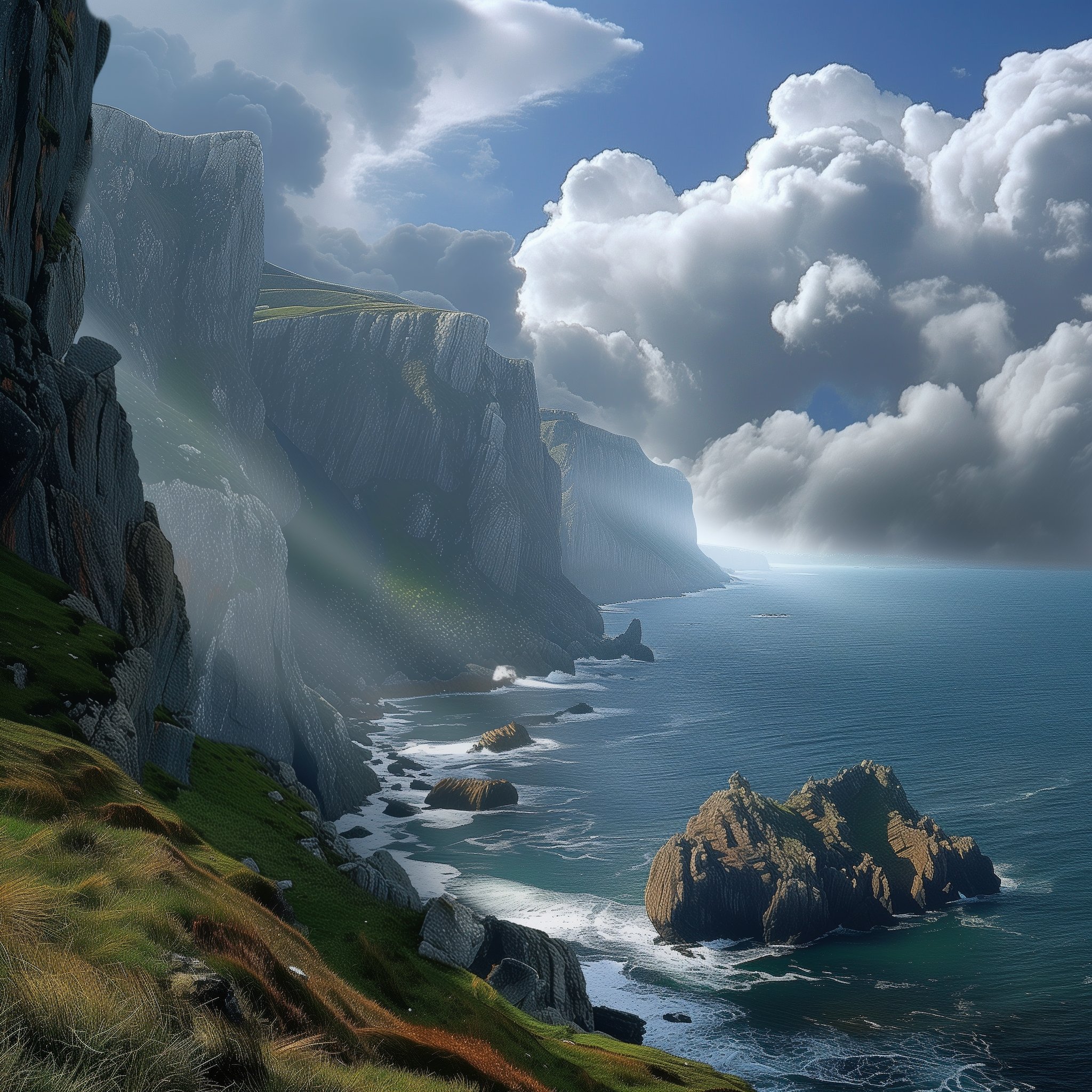
Madeira is also home to extensive forests, including the ancient laurel forest, which appears mystical in cloudy weather, and dense eucalyptus forests, ideal for meditative and healthful walks. This abundance of forests justifies the island’s name, as “madeira” means “wood” in Portuguese.
If you prefer beach vacations, you’ll likely access the water from special piers or coastal pools with ocean water, as the island’s beaches are usually small and rocky. The volcanic origin of the island gives the sand a unique deep black color.
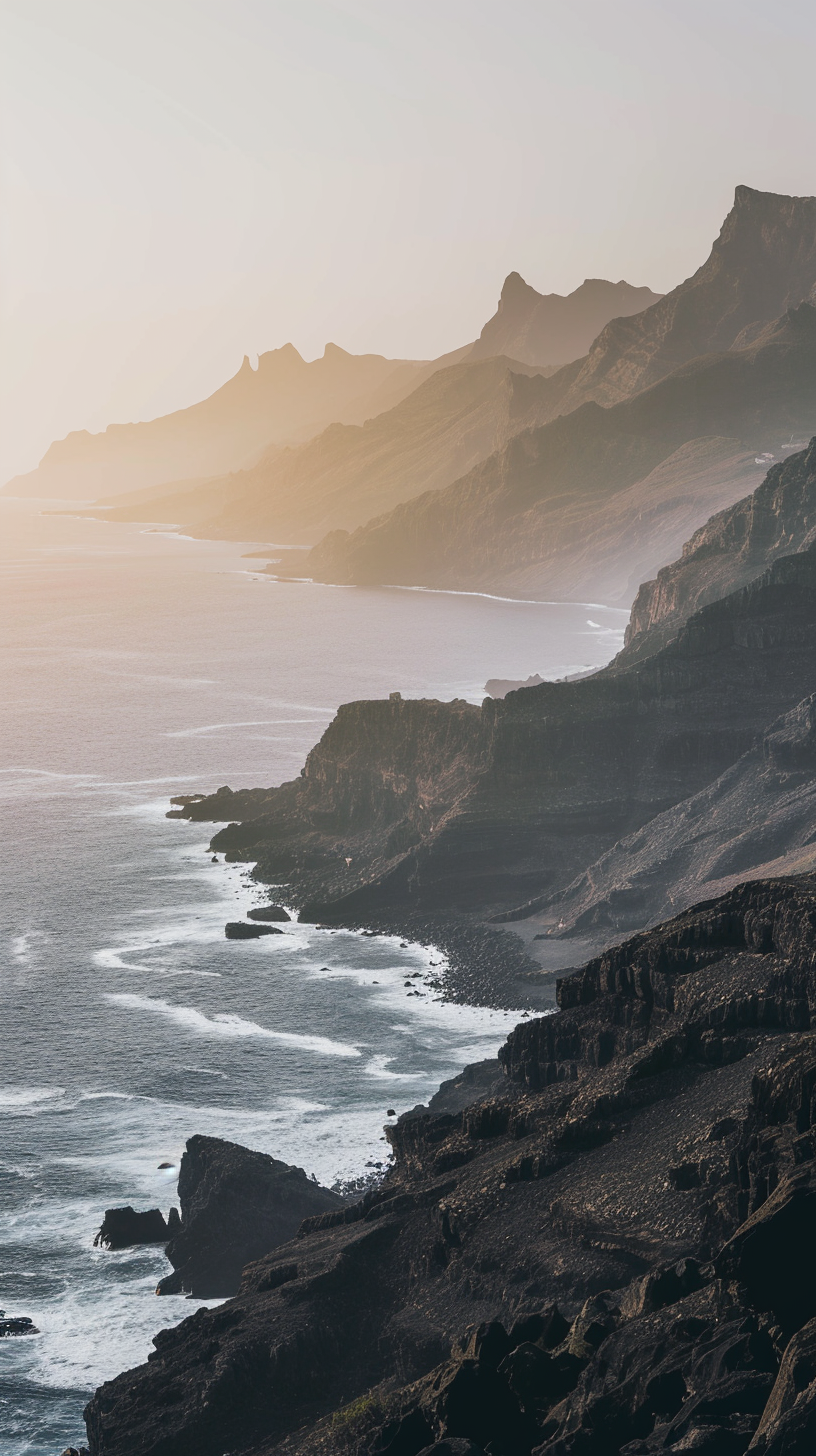
Remember, Madeira is an archipelago, not just a single island. If the main island’s natural variety isn’t enough, you can fly or take a regular ferry to nearby Porto Santo, where you’ll find slightly warmer ocean waters, miles of white sandy beaches, and a rugged landscape.
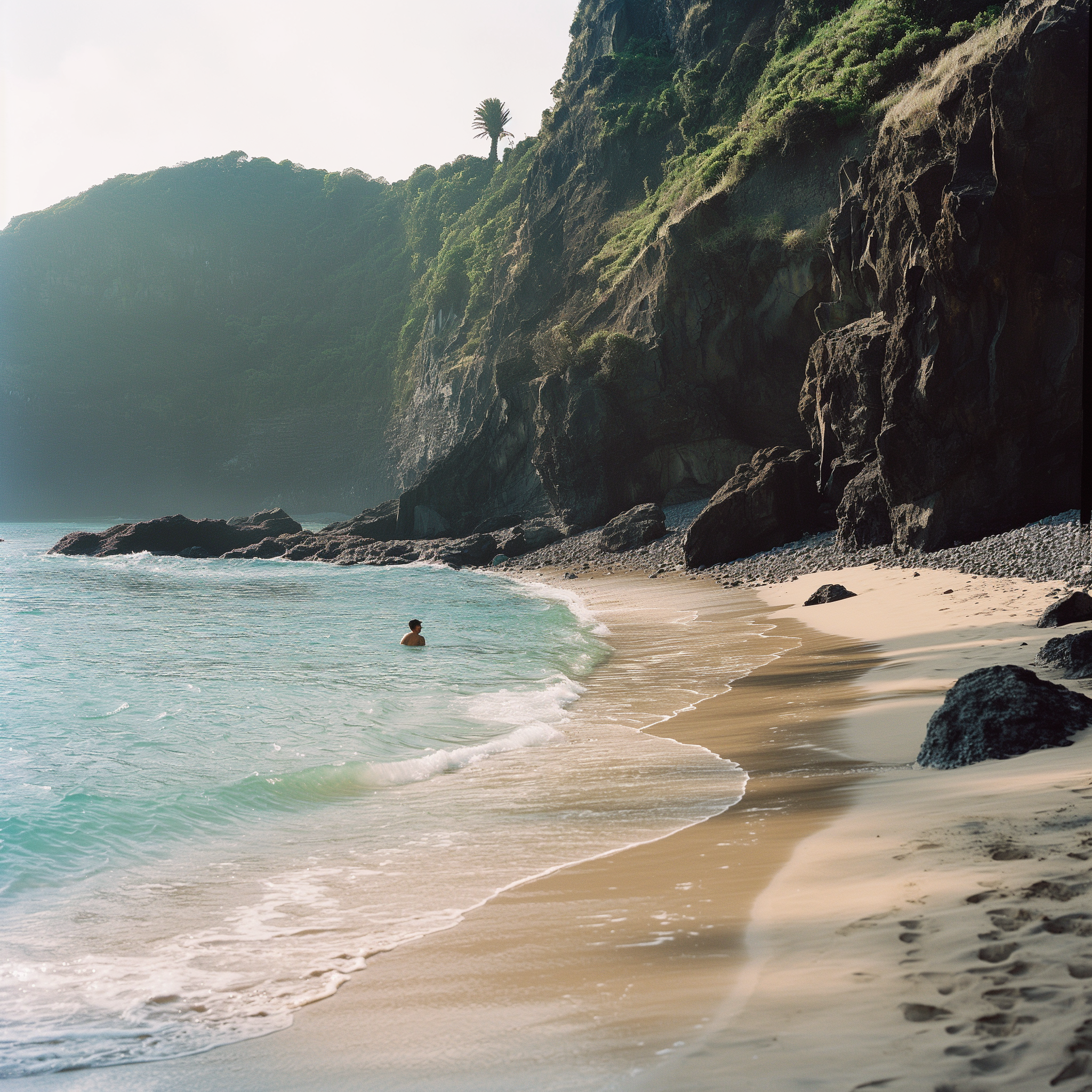
Eternal Spring
Madeira offers its diverse nature year-round due to its geographic location, where temperatures rarely drop below +15°C in winter and +20°C in summer. Summer temperatures generally don’t exceed +27°C, though occasional heat waves do occur. The mild climate has earned Madeira the nickname “Island of Eternal Spring.”
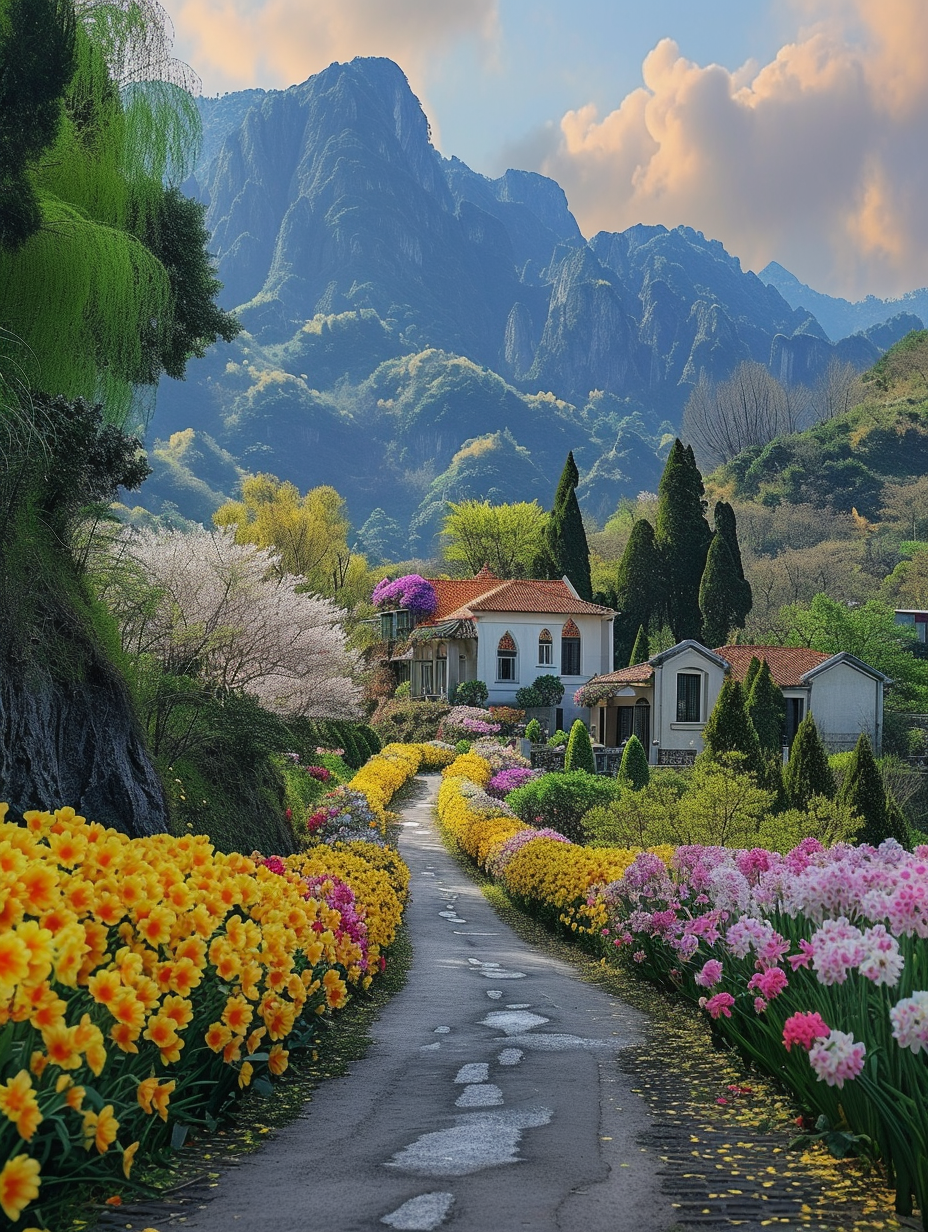
The island also boasts incredible floral diversity, with different periods offering unique scenery. For example, jacaranda trees bloom in bright violet during spring, while silk floss trees turn the cities soft pink in autumn.
From May to October, you can enjoy the warmest beach season and numerous festivals and activities. However, peak months like July and August can be crowded and expensive.
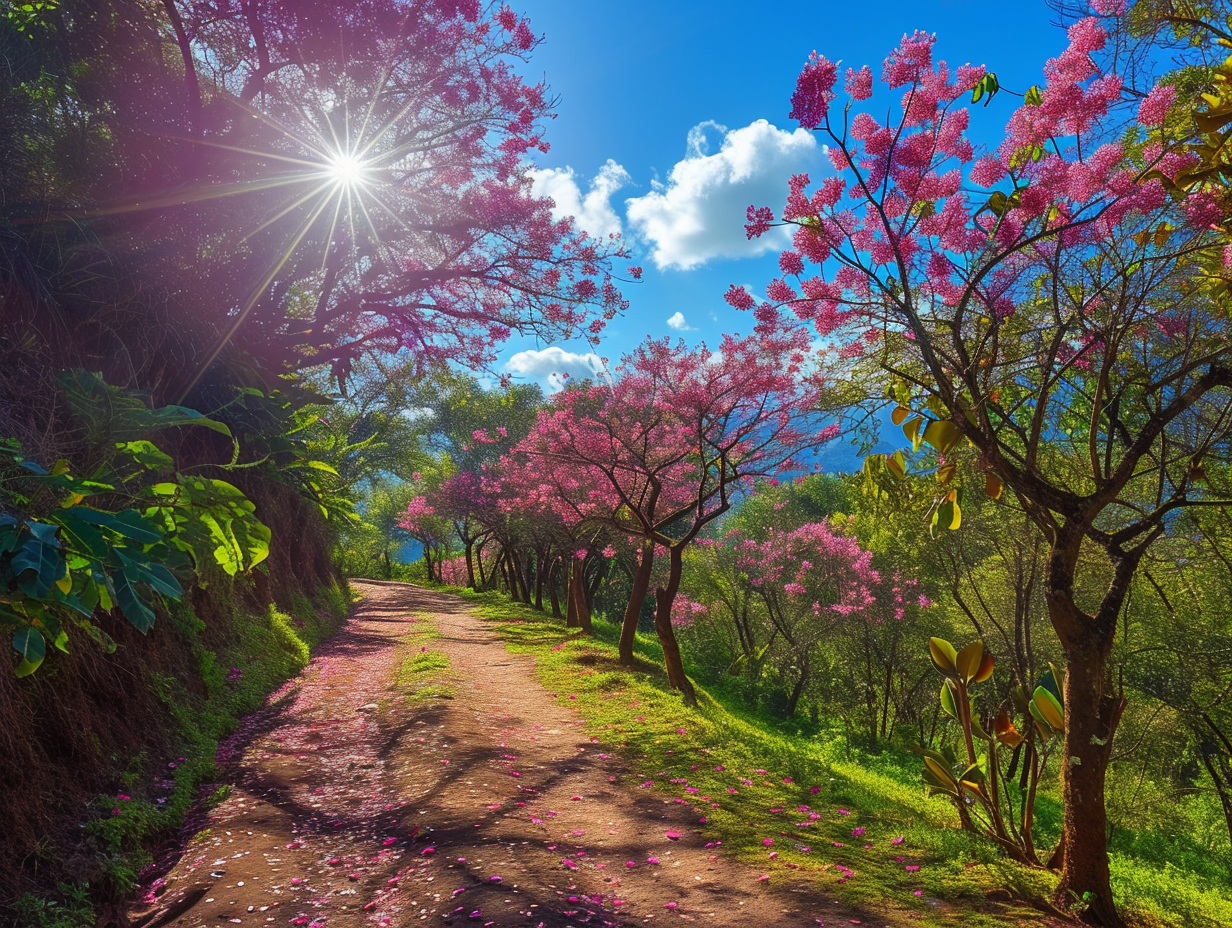
From November to April, Madeira is ideal for exploring its nature in a peaceful, less crowded setting, indulging in gastronomic tours, or simply relaxing. February and March might be colder, windy, and rainy, but on particularly warm days in the low season, swimming and sunbathing are still possible as ocean temperatures don’t fluctuate much.
Activities
Madeira offers almost every type of familiar entertainment, except skiing. Activities are well-distributed across different skill levels. For instance, if you want to enjoy the island’s natural beauty with children, parents, or just prefer an easy walk, head to the levadas—well-maintained scenic trails along irrigation channels that bring water from the mountains to the towns. For something more challenging, try the exciting hiking trails requiring good physical fitness.
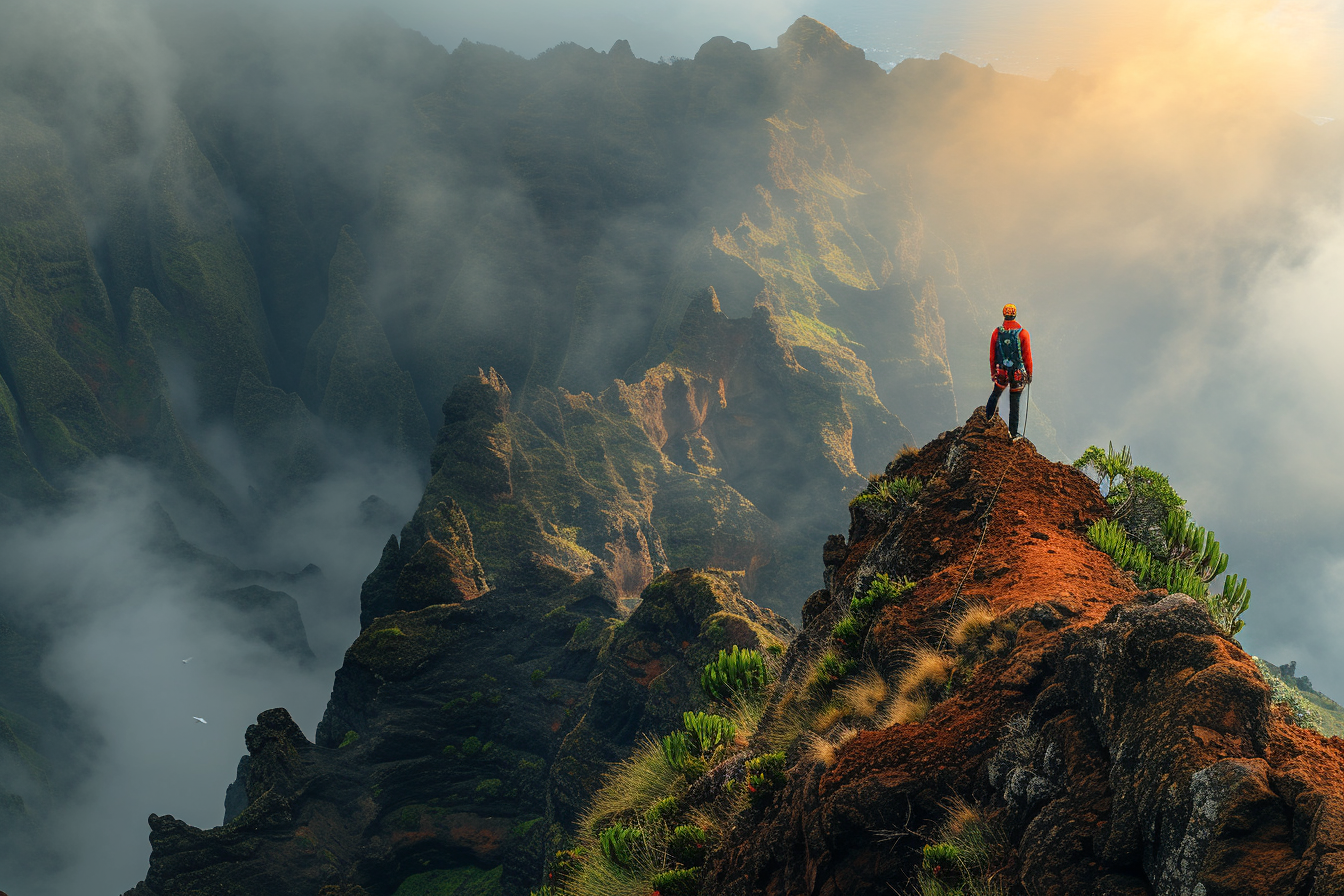
The island also offers canyoning, coasteering, mountain biking, paragliding, and surfing. Regardless of age, group composition, or fitness level, you’ll find a suitable way to explore the island and have a great time.
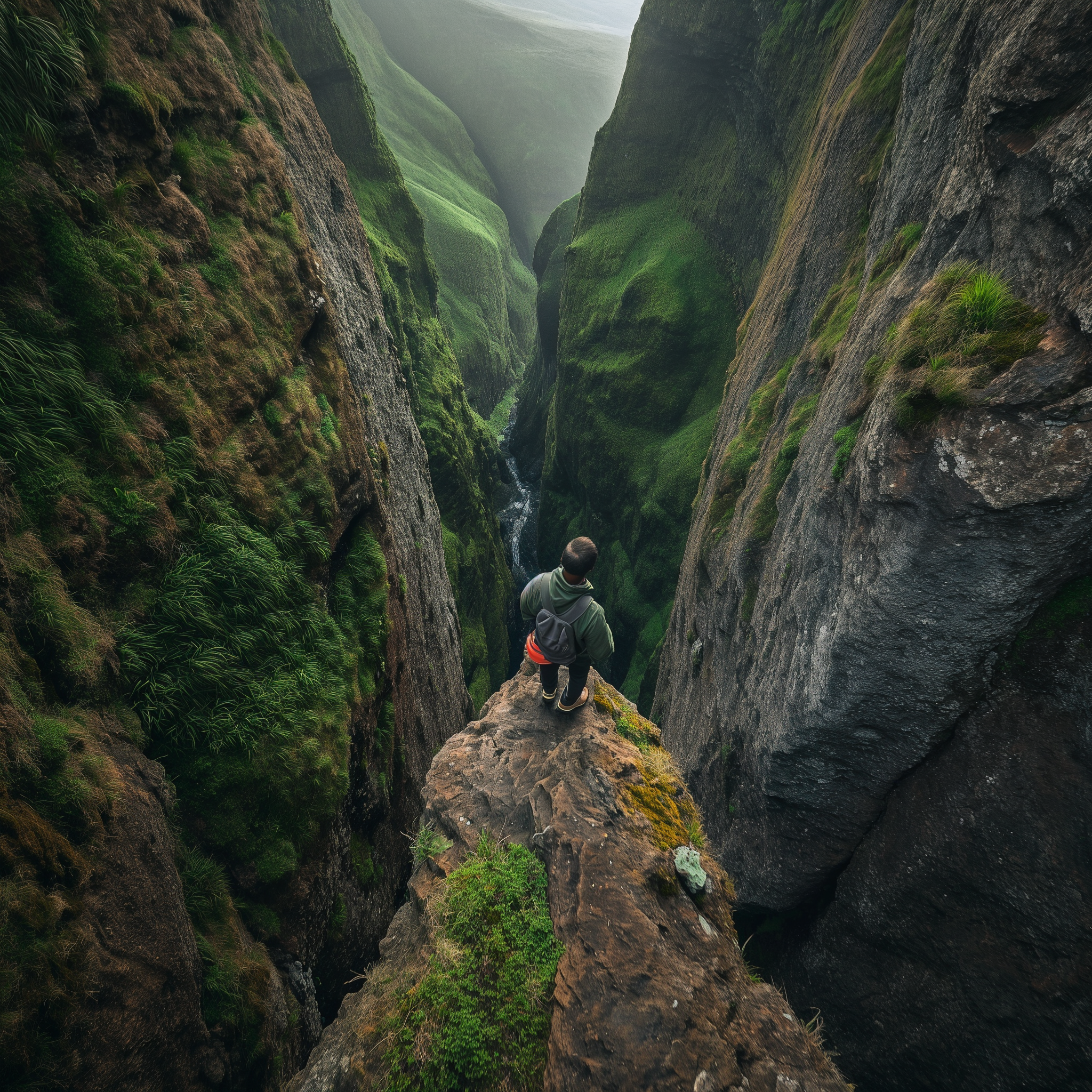
Additionally, there are boat trips for dolphin and whale watching, safaris, and tours available through numerous tour agencies in Funchal, the island’s main city.
Food
Besides traditional Portuguese cuisine, Madeira offers unique foods and drinks not found elsewhere in the country. For example, try Madeiran espetada—beef skewers seasoned with spices and bay leaves, cooked on a bay leaf stick. In some places, you can even grill it yourself at a barbecue spot or directly behind the meat shop.
Fish lovers should try the black scabbardfish (espada), a deep-sea fish that looks quite frightening but is tenderly prepared by local chefs, often paired with bananas from local plantations. Madeira is also rich in fruits, especially exciting in winter when the most interesting ones hit the market.
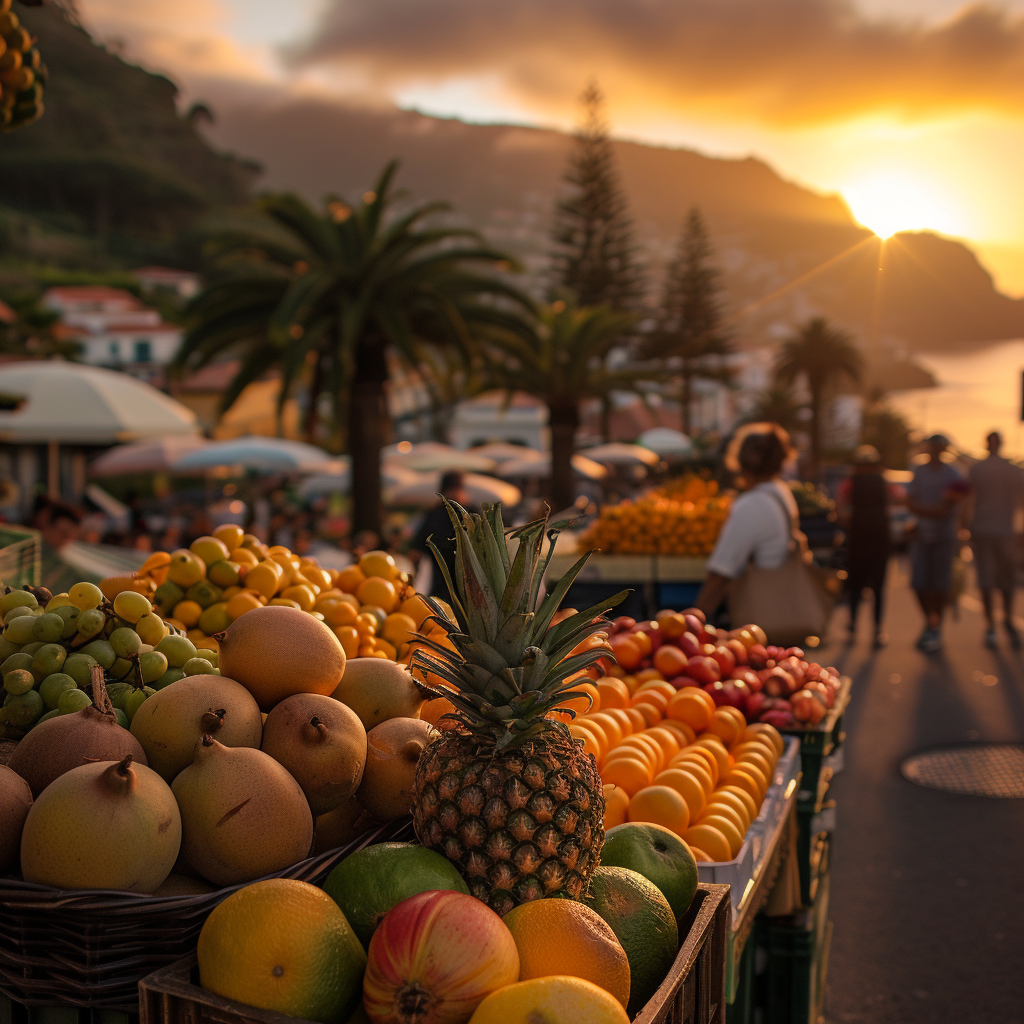
What to try? Local bananas, smaller but sweeter and softer than usual, custard apples with a crème brûlée-like taste, and passion fruit in various unusual varieties like banana-passion fruit and tomato-passion fruit. And don’t miss the king of market stalls, the monstera fruit or banana-pineapple fruit, resembling both in appearance and taste.
Madeira Wine
Madeira is also a wine region, home to nearly 2,000 vineyards and seven wineries that export worldwide. Apart from traditional wines, they produce their unique fortified Madeira wine. Unlike most wines aged in cool cellars, Madeira wine is aged in warm attics, making it resilient to storage conditions and high temperatures during transport, which brought it international fame in the 17th century.
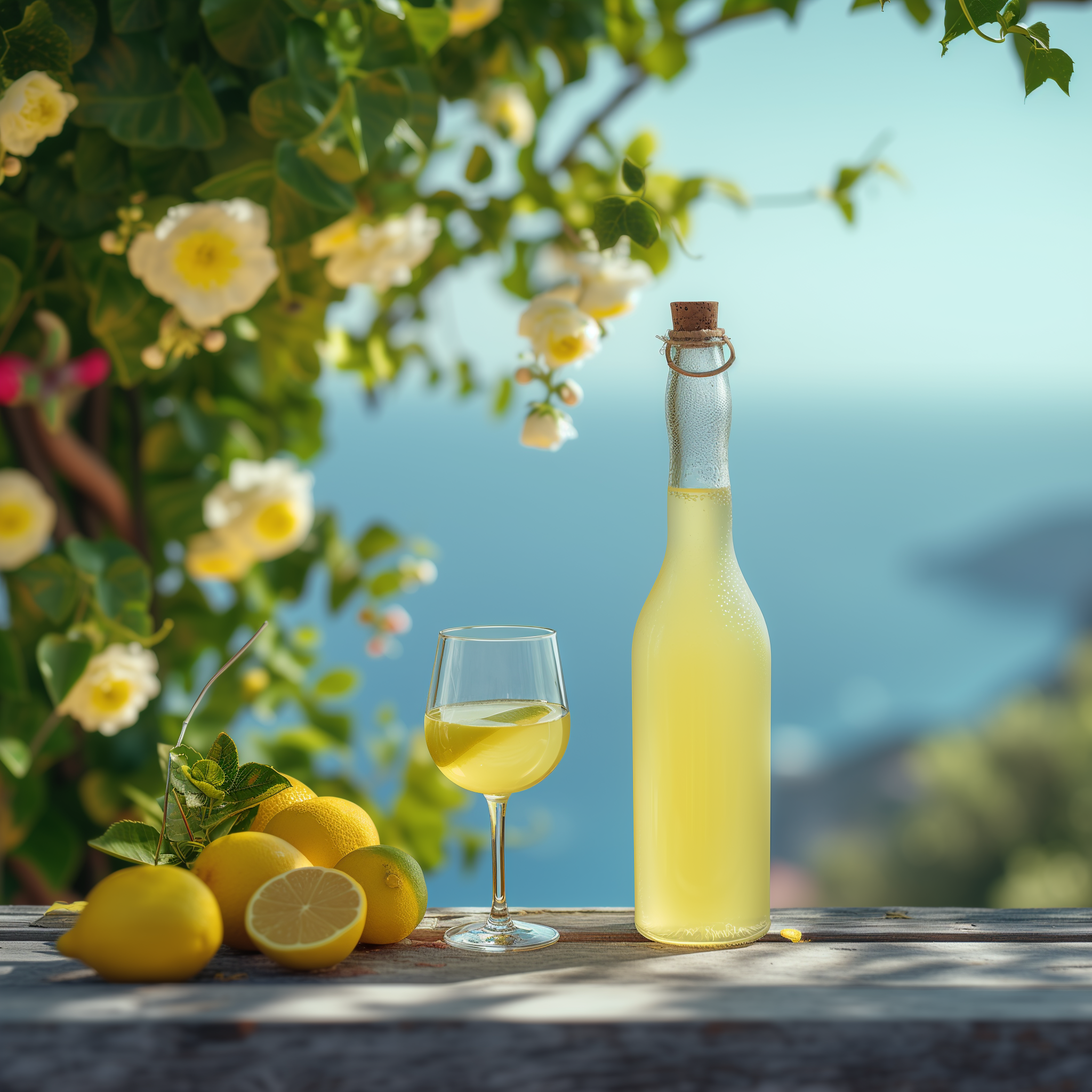
Another popular drink is poncha, made from a special type of local rum, orange or lemon juice, sugar, and honey. Variations include fresh passion fruit, tangerines, limes, and other ingredients that deviate from traditional recipes.
Non-alcoholic options include nikita, a delightful simple cocktail made from ice cream and pineapple juice, with a mildly alcoholic version that includes a bit of beer.
5G in the City, 4G in Nature
Madeira’s infrastructure is excellent. The island has everything you need: great roads, car and motorcycle rentals, 5G internet, a decent public transport system, modern accommodation, and two large supermarket chains with numerous locations. Many locals speak English, thanks to thriving tourism and a significant number of British tourists and expats. The island is also very safe, contributing to a basic trust between people and services.
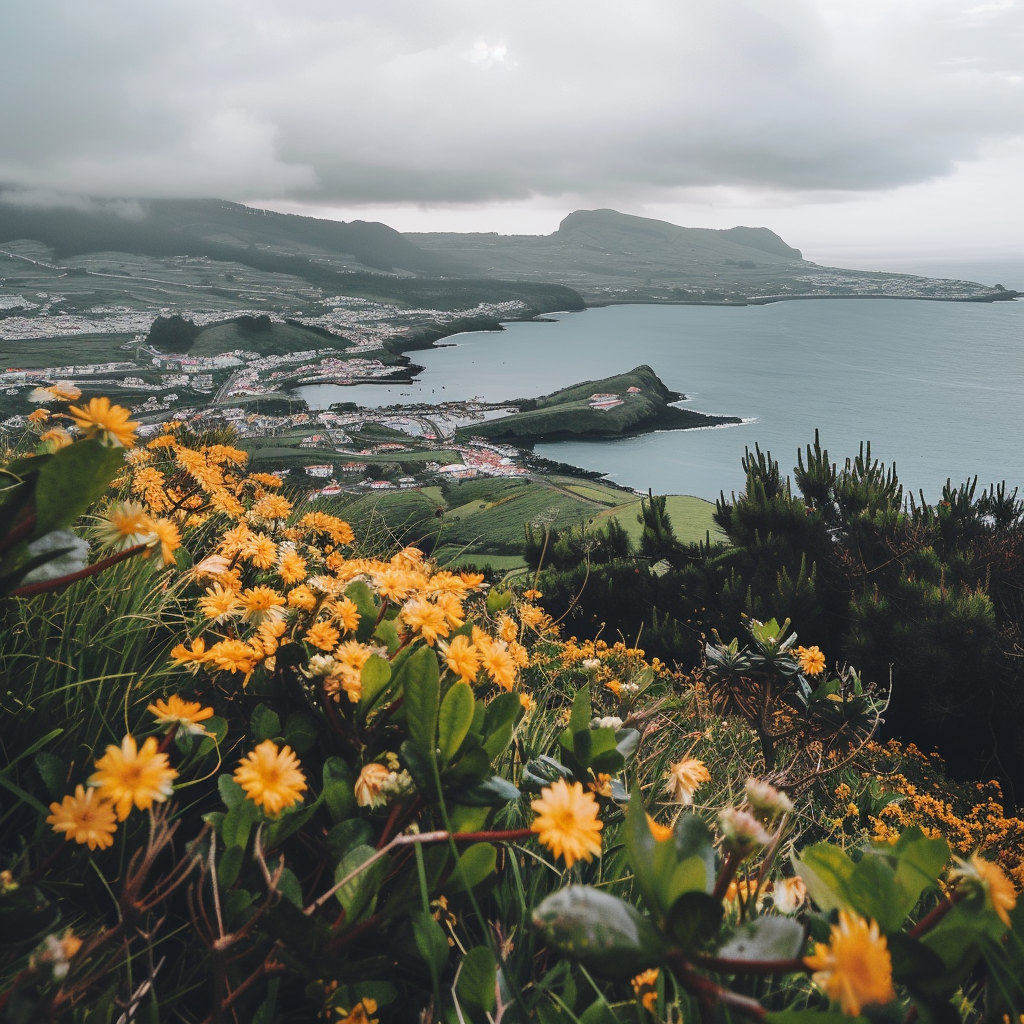
The region has two international airports, one on the main island of Madeira and the other on Porto Santo. Another convenience is direct flights to nearly every European country, often at reasonable prices.
Landing at Cristiano Ronaldo International Airport on the main island is a unique experience. Pilots undergo annual training to be certified to land here due to the challenging approach, requiring a high degree of skill. While it may seem daunting, it’s more thrilling than dangerous, and there hasn’t been a serious incident in nearly 50 years.
Vibrant Culture
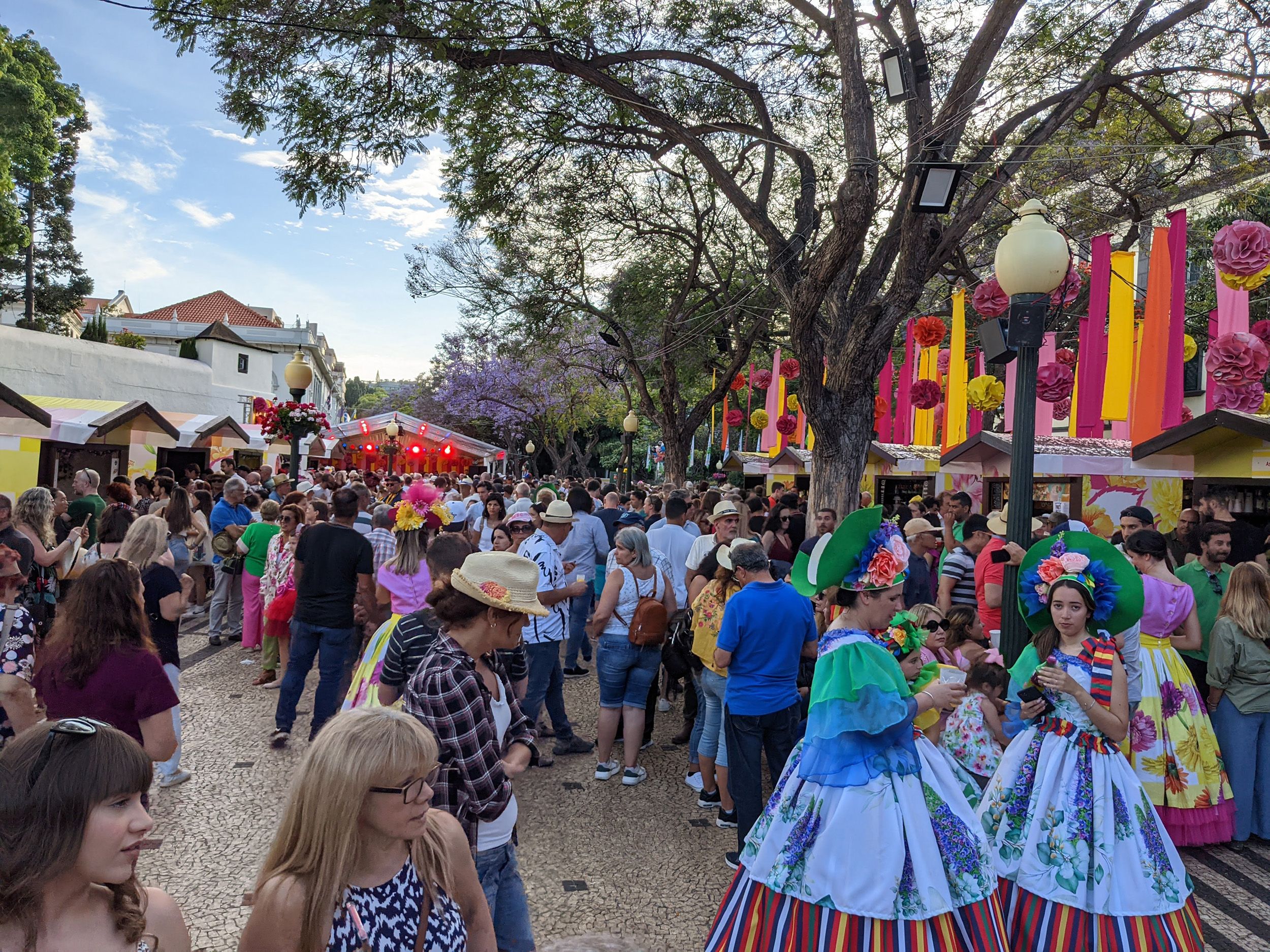
Madeirans have a genetic inclination for weekend gatherings, drinking poncha, listening to music, and having fun. Numerous festivals and celebrations peak during the summer season and Christmas. Events include a local version of the Brazilian carnival, a vintage car parade, the Flower Festival, a month of fireworks, Wine Week, Super Trial, music festivals, rallies, religious celebrations, and much more. In summer, you don’t even need to wait for the weekend—events take place almost daily across the island.
There’s also a vibrant digital nomad community hosting their own activities.



